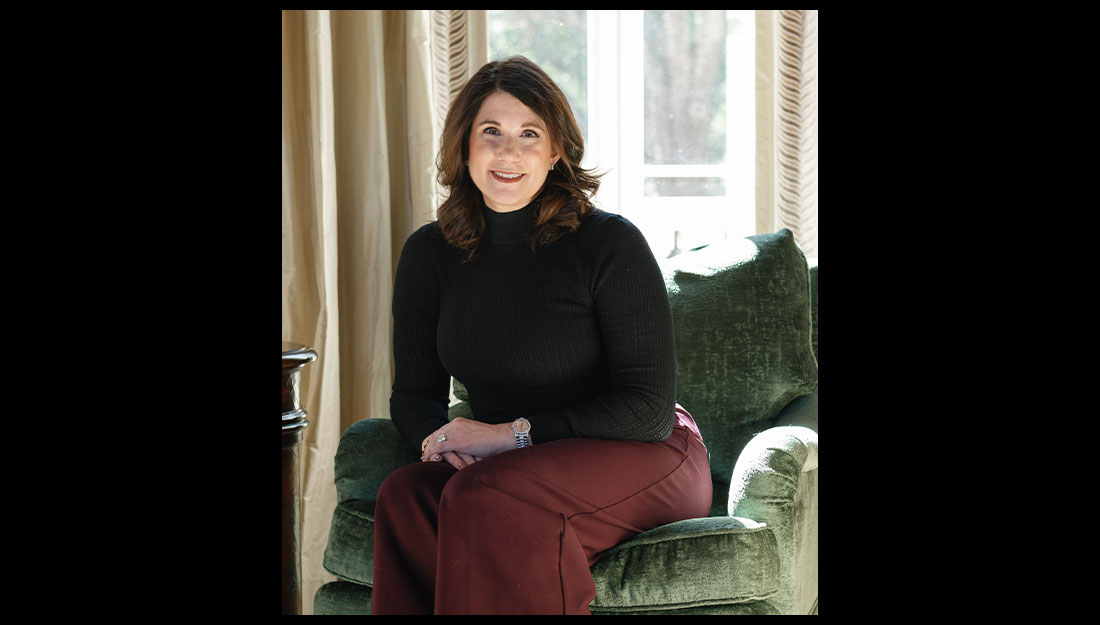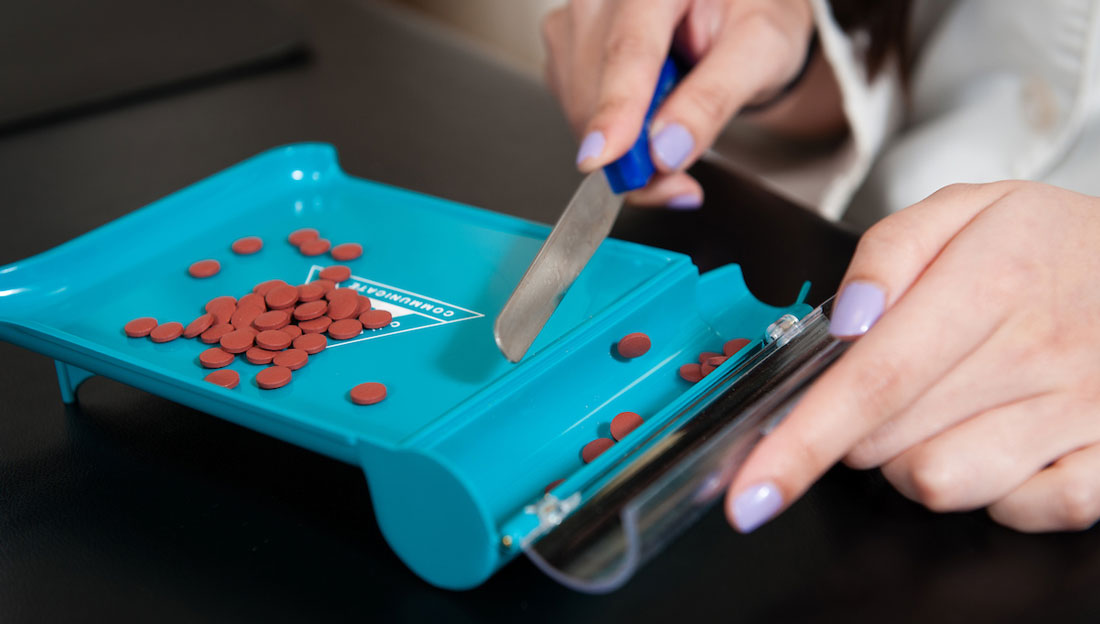- Rachel Moore, MD '02
- Community, Health Tips, Medicine, Show on VR homepage
Knowledge is power: Lessons I’ve learned through my journey with breast cancer
College of Medicine former student, dermatologist and breast cancer survivor shares her story with the hope of saving lives

Rachel Moore graduated from the Texas A&M University College of Medicine and is currently practicing dermatology in College Station, Texas. (Patti Darby / Texas A&M College of Medicine)
In March of 2022, at the age of 44, I found a change in my right breast. As a dermatologist, my heart sank because I immediately knew this thickening that I could feel was not normal. Despite having had a mammogram just two months prior, I knew I needed an additional evaluation.
I immediately contacted my doctor and was scheduled for a diagnostic mammogram. Astoundingly, despite me being able to feel the mass, the mammogram once again did not show anything. However, on ultrasound performed in conjunction with the diagnostic mammogram, a two-centimeter tumor was visible, and the radiologist confirmed that it had the classic appearance of breast cancer. After biopsies were taken, an MRI revealed an extensive amount of cancer.
I was diagnosed with invasive lobular carcinoma (ILC), a notoriously “tricky” type of breast cancer to diagnose because it is less detectable on a mammogram than other types of breast cancer. ILC is the second most common type of breast cancer, occurring in approximately 10 percent of breast cancer cases. However, until recently, there were few studies that looked specifically at ILC and so less is known about how to handle this specific diagnosis. As such, developing my treatment plan was long and complicated because expert opinions often do not align on this specific subtype of breast cancer. Ultimately, it was recommended that I have a mastectomy, chemotherapy, complete lymph node removal, and seven weeks of radiation. Since undergoing these procedures, there are no longer signs of active disease; however, I remain on oral treatment that blocks the hormones that could lead to reactivation of my cancer for at least the next 10 years.
During the initial 18 months from the time of my diagnosis, I had seven surgeries and continue to deal with daily management of lymphedema as a result of my diagnosis. Lymphedema is a chronic condition that occurs as a complication of lymph node removal and radiation that results in swelling of the affected extremity. I now wear compression garments, perform manual lymph drainage, and have a home device that helps me keep this complication from progressing.
I am often asked if breast cancer runs in my family. It does not. It is critical to remember that 90-95 percent of breast cancer has no detectable genetic mutation. When I was diagnosed, I thought I had been doing everything right. I had never missed a mammogram, yearly well woman exam or annual general physical. I had always focused on being active, trying to maintain a healthy diet, and generally living a healthy lifestyle. Despite all these things, I still developed breast cancer. Even though I was getting regular mammograms, I have since learned that having dense breasts makes it harder to detect cancer on mammography.
Living with my new normal is a real struggle. However, knowledge is power, and I have learned several things throughout this journey that I want to share:
- First, perform monthly breast self-exams. It may save your life. Commit to examining your breasts on a monthly basis so that you are able to recognize if something is different.
- Know that not all breast cancers form lumps. Specifically, ILC commonly presents with a feeling of fullness in the breast or with dimpling or changes in the surface of the skin. Another, more rare type of breast cancer is inflammatory breast cancer, which can present with redness of the skin. It is imperative to see your doctor to get any of these changes evaluated immediately.
- Advocate for yourself. You know your body best. Over the past two years, I have heard countless stories of women whose diagnoses were delayed as even physicians with the best intentions can struggle to make this diagnosis. It is imperative that you continue to express any lingering concerns that you may have about your body and your health.
- MRI is the best screening tool for women with dense breasts. Insurance coverage for this test is often a concern, but if your mammograms indicate that you have dense breasts, I encourage you to have a discussion with your doctor about this potentially lifesaving tool.
This journey has forever changed me. I deeply understand that God loves me and will carry me when I cannot stand on my own. I am literally grateful for each day with my family. We are never guaranteed tomorrow, so live in the moments of today. It is an amazing world and modern medicine is an incredible gift.
I am sharing my story with the hope of impacting this narrative and saving lives.
Media contact: media@tamu.edu


